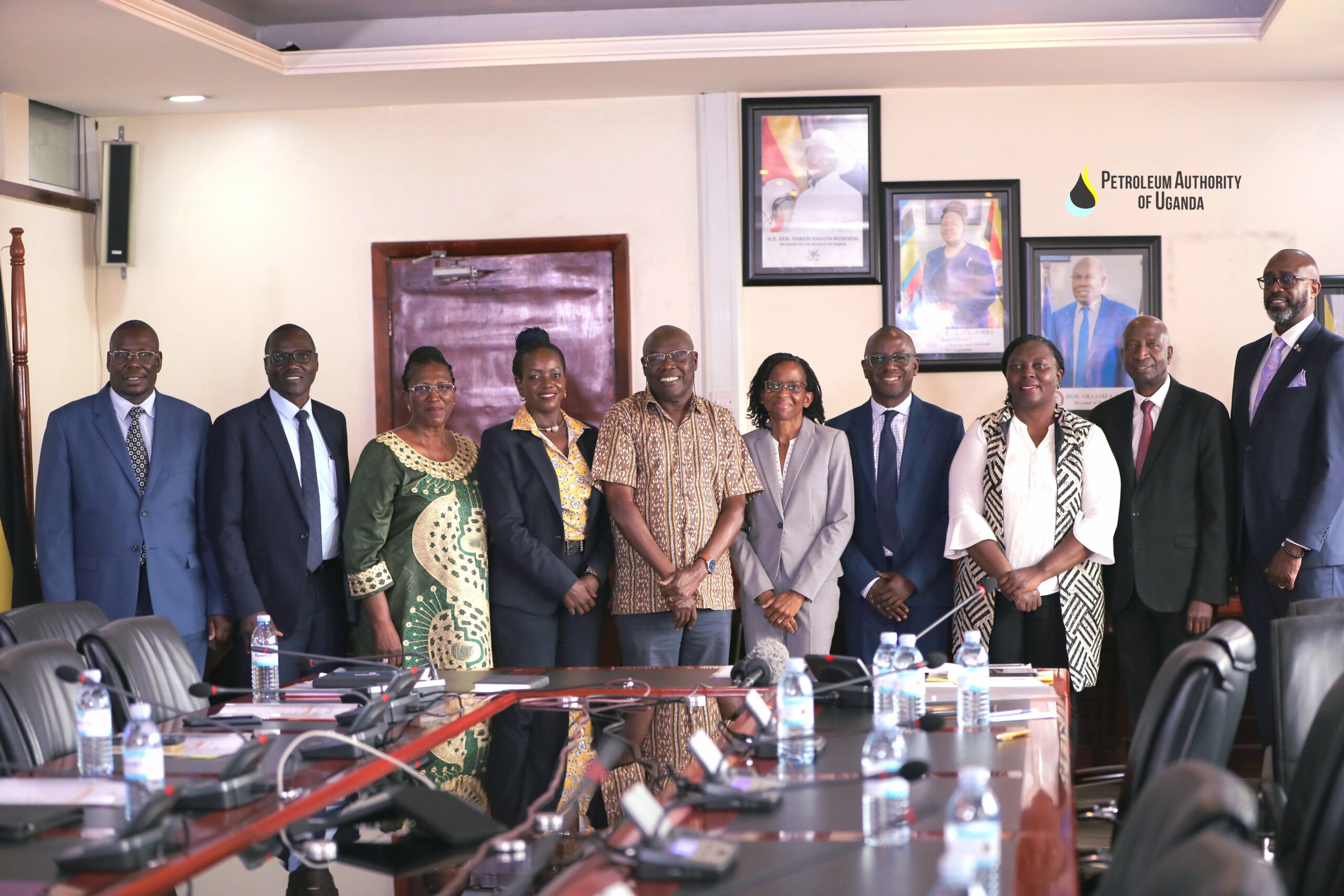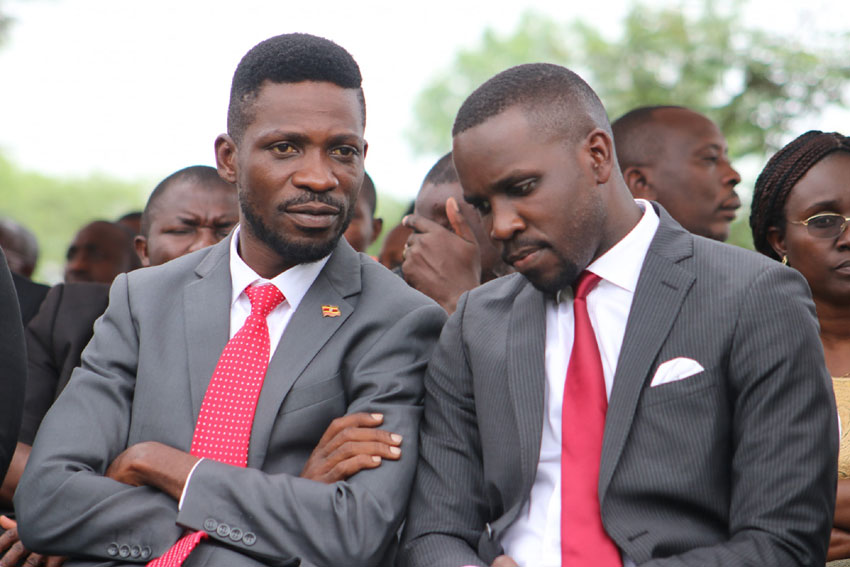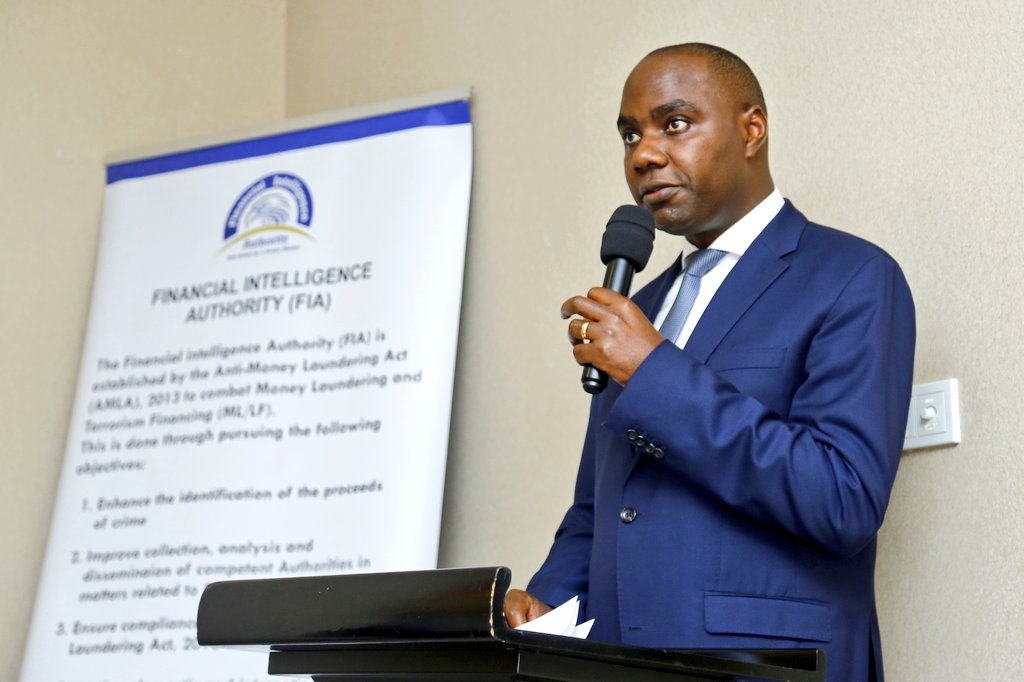The State Minister for Energy, Okaasai Sidronius Opolot, has issued a critical mandate to the newly appointed Board of Directors of the Petroleum Authority of Uganda (PAU) to guarantee that the country commences oil production by 2025.
This directive was made during the inauguration of the new PAU board on Friday, chaired by Lynda Biribonwa. The new seven-member board, which is the third since the PAU’s inception in 2015, is entrusted with regulating and monitoring Uganda’s petroleum sector.
The Ministry of Energy, PAU, and oil companies have committed to starting commercial oil production in the fourth quarter of 2025. However, concerns have been raised about the lengthy timeline, given that Uganda discovered its commercial oil reserves in the Albertine region nearly two decades ago.
Okaasai emphasized the urgency and importance of the board’s role in his speech: “First oil out. This is the challenge. For the chair, she delivered the Final Investment Decision (FID). For the new assignment, we want the oil out. And this is the assignment for the new board. We shall be proud when you deliver it.”
The new board, chaired by Lynda Biribonwa, succeeds the board led by Dr. Jane Nambakire Mulemwa. Under Dr. Mulemwa’s leadership, the PAU successfully regulated the sector and oversaw significant projects such as the Kingfisher project by CNOOC, the Tilenga project by TotalEnergies, and the East Africa Crude Oil Pipeline.
The new board comprises Lynda Biribonwa as chairperson, Professor Vincent Bagire, Oduka Ochan Achan Mary, Solome Galiwango, Innocent Kihika, Adrian Bukenya, and Bernard Ongodia.
Lynda Biribonwa, in her acceptance speech, acknowledged the significant responsibility ahead: “I’m confident that together we will fulfill this mandate with diligence and dedication.” This term marks the second and final four-year tenure for Biribonwa, Innocent Kihika, and Bernard Ongodia.
Engineer Irene Bateebe, the Ministry of Energy’s Permanent Secretary, highlighted the importance of continuity in the board’s functions despite anticipated financial and staffing challenges.
Currently, the PAU has 2015 staff members, although its structure allows for 2077 positions. Bateebe expressed hope that collaboration with the Ministry of Finance would address these issues. She praised the outgoing board for ensuring compliance with regulations, noting, “I have interacted with staff from CNOOC that told me that because of the insistence by the Petroleum Authority, the majority of the staff there are Ugandans.”
Biribonwa assured that her board would strive to meet the PAU’s objectives, particularly in ensuring regulatory continuity and the push towards first oil. Uganda’s proven oil reserves amount to approximately 6.5 billion barrels, with an estimated 1.4 billion barrels deemed economically recoverable.
Currently, CNOOC and TotalEnergies are actively drilling in the Kingfisher and Tilenga areas. Okaasai hinted at potential increases in recoverable reserves, stating, “Major works have taken place; the Final Investment Decision was made. I wish to thank those who were there. I wish to congratulate them, the drilling is taking place. The reports, which I am getting from the CEO is that we expect more than what we have.”
Okaasai also cautioned the new board against corruption, given the significant resources involved. “I wish to warn you that you are coming in at a time when everybody is looking at how this country is going to transform. And you are also coming in at a time when the country is talking about corruption. We are entrusting you this sensitive sector and I know that there will be so many temptations and everyone is going to look on you,” he advised, urging merit-based appointments within the Authority.
Uganda anticipates earning approximately $6.28 billion annually from oil over the next 25 years. While oil revenue alone may not be transformational, it is expected to provide a substantial economic boost.
According to the book “Mining for Change: Natural Resources and Industry in Africa” (2020), the projected average of US$38 per capita per year over a 33-year period underscores the potential impact of this revenue on Uganda’s economy.
The Ministry’s Permanent Secretary, Irene Bateebe, reiterated the importance of strong institutions for efficient oil and gas resource management, as envisioned when the oil laws were established.
She said, “When the oil laws were put in place, the government foresaw strong institutions to support the efficient management of oil and gas resources.”
The new board’s mandate is clear: to deliver Uganda’s first oil by 2025, ensuring that the nation reaps the benefits of its vast oil reserves.
The challenges are significant, but with committed leadership and robust regulatory oversight, Uganda is poised to become a key player in the global oil industry.
Do you have a story in your community or an opinion to share with us: Email us at Submit an Article









